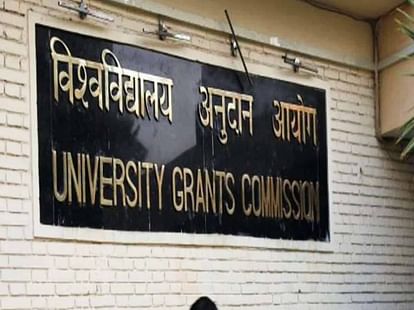
105 Universities to Introduce 4-year UG Programmes: Important Details
The central universities opting for the four-year UG courses include Delhi University, Aligarh Muslim University, Viswa Bharti University, Assam University, Tezpur University, Central University of Jammu, Sikkim University, National Sanskrit University, and Maulana Azad National Urdu University. Additionally, the Shri Lal Bahadur Shastri National Sanskrit University, English And Foreign Languages University, Hemvati Nandan Bahuguna Garhwal University, Mahatma Gandhi Antarrashtriya Hindi Vishwavidyalaya, Rajiv Gandhi University, and the central universities of Haryana, South Bihar, and Tamil Nadu have also joined the list.
The remaining universities consist of over 40 deemed-to-be universities, 18 state private universities, and 22 state universities. The National Education Policy (NEP), 2020, recommended that undergraduate degrees should be either three or four years in duration, with multiple exit options and appropriate certifications. The four-year multidisciplinary Bachelor's programme was suggested as the preferred option to provide a holistic and multidisciplinary education.
In line with the NEP 2020, the UGC developed a new student-centric "Curriculum and Credit Framework for Undergraduate Programmes (CCFUP)" that incorporates a flexible Choice-Based Credit System (CBCS), a multidisciplinary approach, and multiple entry and exit options. UGC Chairman Jagadesh Kumar stated, "The existing CBCS, though providing flexibility, lacks multi- or inter-disciplinary flavour. In its efforts to revise the CBCS, the UGC has developed 'Curricular Framework and Credit System for FYUGP' by taking into account all relevant policy recommendations of NEP, 2020."
The FYUGP aims to equip students with capacities in various fields, including the arts, humanities, languages, natural sciences, social sciences, and ethical social engagement. It also focuses on developing soft skills such as complex problem-solving, critical thinking, and communication skills, alongside specialization in chosen majors and minors.
The framework suggests a credit range of 20-22 credits per semester. The first three semesters focus on developing an understanding of major areas of learning, including the natural sciences, social sciences, humanities, mathematics, computational thinking, analysis, and vocational education. From the fourth semester on, students choose a disciplinary or interdisciplinary area of specialization for their majors and minors.
In the seventh and eighth semesters, students undertake a research project alongside advanced disciplinary and interdisciplinary courses. The framework provides details of the curriculum components and credit apportionment for the FYUGP.
"A suggestive credit structure for FYUGP with 160 credits is also given in the framework. The curricular framework and credit system developed by the UGC for undergraduate programmes, emulating the limitless learning that existed in ancient India, will offer infinite opportunities to students, we hope," Kumar added.







